Choosing the right shed brand can feel overwhelming with so many options available. From durability to style and price, the right shed makes all the difference for your backyard storage.
Table of Contents:[hide]
Why Choosing the Right Shed Brand Matters
A shed isn’t just another backyard purchase—it’s a long-term investment in your home. The right shed brand determines not only how your shed looks but also how well it holds up against weather, how easy it is to assemble, and how convenient it is to maintain.
Choosing carefully helps you avoid common frustrations like flimsy materials, leaking roofs, or difficult assembly instructions. A trusted shed brand also gives you peace of mind, knowing your tools, kids’ gear, or seasonal items are safe and accessible year-round.
In short, the right brand ensures you’re not replacing or repairing your shed in just a few years, but instead enjoying reliable storage for the long haul.
Keter Overview
Keter is one of the most well-known shed brands worldwide, specializing in resin and plastic sheds designed for low-maintenance storage. Their sheds are popular among homeowners who want a stylish, durable option without the hassle of upkeep.
Types of Keter Sheds
Keter offers a wide variety of sheds to fit different needs:
-
Small vertical sheds – great for garden tools or kids’ outdoor toys.
-
Medium-sized sheds (4x6, 6x8, etc.) – ideal for bikes, lawnmowers, and patio gear.
-
Large sheds (8x10, 11x7, etc.) – provide more space for outdoor storage or hobby workshops.
Most models feature double doors, lockable options, and wood-like resin finishes for better aesthetics.
Pros & Cons of Keter Sheds
|
Pros |
Cons |
|
Low maintenance – no painting, rotting, or rusting |
Not heavy-duty – not ideal for large machinery or heavy workshop use |
|
Weather-resistant – stands up well to rain, sun, and snow |
Limited customization – plastic material restricts modifications |
|
DIY-friendly assembly – panels are lightweight and easy to put together |
Ventilation issues – some models may lack proper airflow |
|
Attractive designs – wood-like finishes blend into gardens and patios |
Less sturdy feel compared to wood or metal sheds |
Price & Quality
Keter sheds are considered mid-range in pricing, balancing affordability with quality. Here’s a rough guide:
-
Small sheds: $250 – $500
-
Medium sheds: $600 – $1,000
-
Large sheds: $1,200 – $2,000+
In terms of quality, Keter is excellent for everyday homeowners who want a reliable and attractive shed for storage. However, if you’re planning to use the shed as a heavy-duty workshop, you may want to explore metal or reinforced options.
Patiowell Overview
Patiowell is a newer shed brand gaining attention for its practical designs, affordability, and focus on backyard storage solutions. Compared with longer-established names like Keter and Suncast, Patiowell emphasizes user-friendly assembly and versatile options for different yard sizes.
Types of Sheds Offered
Patiowell currently offers two main categories:
-
Plastic Sheds – Lightweight, weather-resistant, and low-maintenance; ideal for small to medium yards. Sizes range from 4x4 ft to 8x12 ft.
-
Metal Sheds – Durable galvanized steel builds; stronger against wind and impact. Larger sizes available such as 10x10 ft, 10x12 ft, and 12x12 ft.
Pros and Cons of Patiowell Sheds
|
Pros |
Cons |
|
Affordable compared to premium brands |
Fewer style options compared to Keter or Lifetime |
|
Easy-to-assemble kits with clear instructions |
Limited availability in retail stores; mostly online |
|
Both plastic and metal options available |
Some users report extra sealing is needed on metal sheds to prevent leaks |
|
Good balance of storage capacity and footprint |
Newer brand, less long-term durability history |
|
Modern, minimalistic look fits small yards well |
Fewer accessories compared to Suncast |
Price & Quality
Patiowell sheds are generally budget to mid-range, offering good value:
-
Small Plastic Sheds (4x4–4x8 ft): $509–$839
-
Heavy Plastic Sheds (8x6–8x12 ft): $1399–$2100
-
Metal Sheds (10x8–12x12 ft): $639–$1009
In terms of quality, Patiowell provides a solid balance between affordability and durability. Their sheds may not have the premium polish of Keter, but they’re designed for practical, everyday storage and work well for families who want a reliable shed without overspending.
Suncast Overview
Suncast is a trusted North American brand known for its durable resin and plastic sheds. Their designs prioritize functionality, ease of access, and weather resistance—making them a popular choice for families, gardeners, and homeowners seeking reliable outdoor storage.
Types of Suncast Sheds
Suncast offers several shed styles to fit various storage needs:
-
Horizontal storage sheds – compact and ideal for trash bins, garden tools, or small spaces.
-
Vertical sheds – tall and narrow, perfect for long-handled tools or minimal footprint needs.
-
Medium/large storage sheds – roomy designs with double doors, skylights, and floors for bikes, equipment, or workshop gear.
Available in multiple ranges like the Vista, Modernist, Tremont, and Alpine series, Suncast sheds come with practical features such as reinforced floors, skylights, and vent systems.
Pros & Cons of Suncast Sheds
|
Pros |
Cons |
|
Durable resin construction – resists UV, moisture, and general wear |
Mid-level security – not as secure as metal sheds |
|
Often includes skylights & ventilation (e.g., IllumiVent system) |
More expensive than basic plastic models |
|
Smooth, modern finishes integrate well with buildings and gardens |
Limited customization and accessory options |
|
Easy to assemble with clear instructions |
Some models may feel less solid than wooden or steel alternatives |
Suncast sheds span a mid-to-high price range depending on size and features. Current listings show:
-
Small horizontal sheds (e.g., 4×3): typically $320–$350
-
Vertical sheds (e.g., small upright storage): approximately $190–$200, especially on sale
-
Medium vertical sheds (e.g., 6×5 Modernist): around $1,099 at retailers like Home Depot
- Large Tremont resin sheds: typically $1,300–$1,800, depending on size and extras like skylights
Suncast delivers excellent quality and long-term value. You're paying more for enhanced features—like skylights, reinforced panels, and stylish design—that elevate typical plastic shed models.
Lifetime Overview
Lifetime is a trusted name in durable outdoor storage. Their sheds combine high-density polyethylene (HDPE) panels with steel reinforcements, offering long-lasting, low-maintenance solutions for homeowners who need sturdy, functional storage.
Types of Lifetime Sheds
Lifetime offers several options to suit different storage needs:
-
Compact and Vertical Sheds – great for small yards or narrow spaces.
-
Medium-sized Sheds – ideal for bikes, tools, or seasonal gear.
-
Large/Workshop-style Sheds – spacious models often come with skylights, shelves, and dual-entrance doors.
All Lifetime sheds feature dual-wall HDPE construction, steel trusses or reinforcements, and textured finishes for a premium look without needing upkeep.
Pros & Cons of Lifetime Sheds
|
Pros |
Cons |
|
Robust, steel-reinforced HDPE construction—built to last |
Premium price compared to basic resin models |
|
Includes functional features like skylights, lockable doors, shelving |
Heavy and may require two people for assembly |
|
10-year limited warranty provides added assurance |
Installation may require a solid foundation (e.g., concrete) |
|
Low maintenance—no painting, rot-resistant, UV-protected |
Less decorative compared to brands like Suncast |
Price & Quality
Lifetime sheds tend to sit in the mid-to-high price range, which aligns with their premium build quality:
-
Small vertical sheds: approximately $400–$600
-
Medium-sized sheds (e.g., 8×5 ft): roughly $1,100–$1,600
-
Larger sheds (e.g., 8×12–15 ft): generally $1,900–$3,000
-
Extra-large models (12’×24’): can exceed $4,000
What you pay for is reliability—Lifetime sheds hold up to tough weather, have built-in organization, and offer peace of mind with a long warranty.
Conclusion
The best shed brand depends on your storage needs, budget, and style preferences. Whether you prefer durability, affordability, or design, the right choice ensures your shed lasts for years.
Diana Mason
Hi there! I’m Diana Mason, the chief editor of Patiowell brand. With over 15 years of diving deep into the world of outdoor furniture, I’ve developed a keen eye for what makes outdoor spaces truly special. I love sharing tips and inspiration to help you create your perfect backyard retreat. Our blog is a reflection of my passion and expertise, featuring only the best pieces that I personally vouch for. Thanks for stopping by—I can't wait to help you transform your outdoor living space!

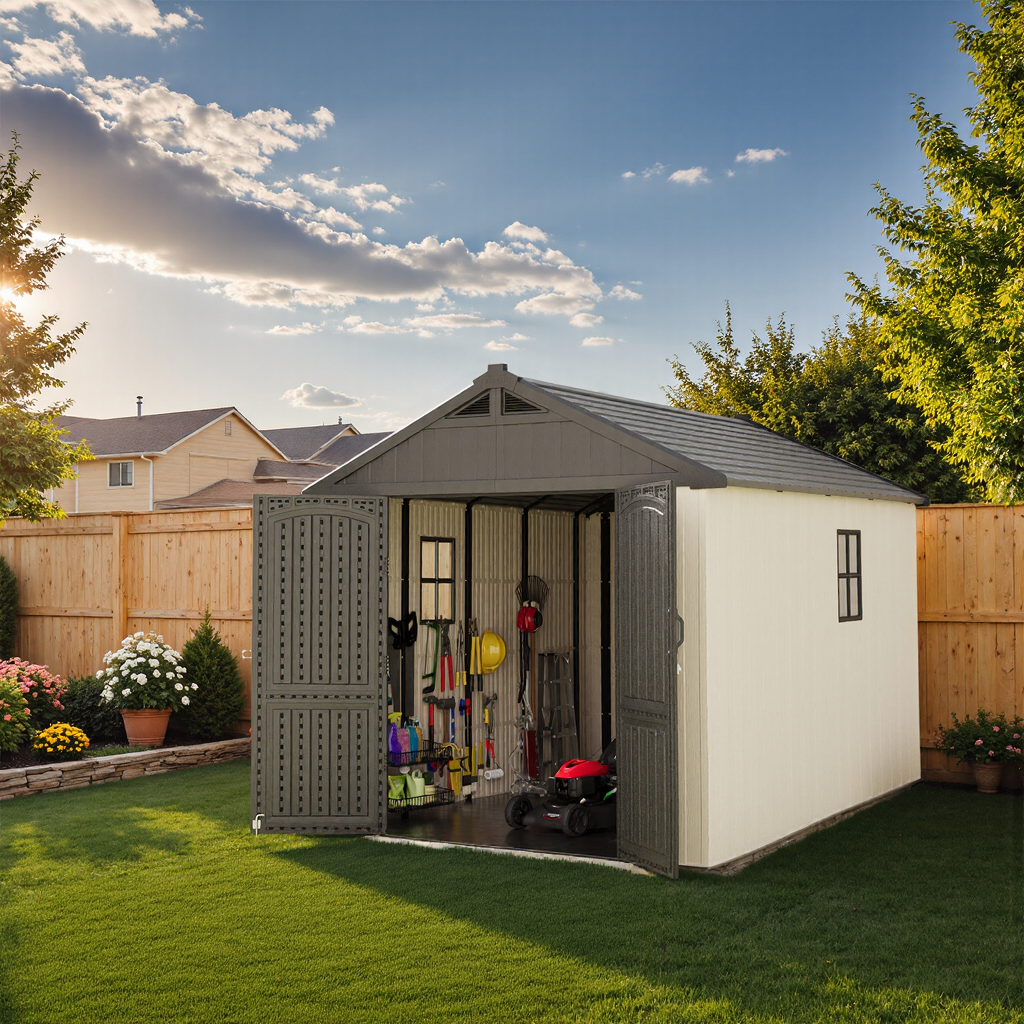
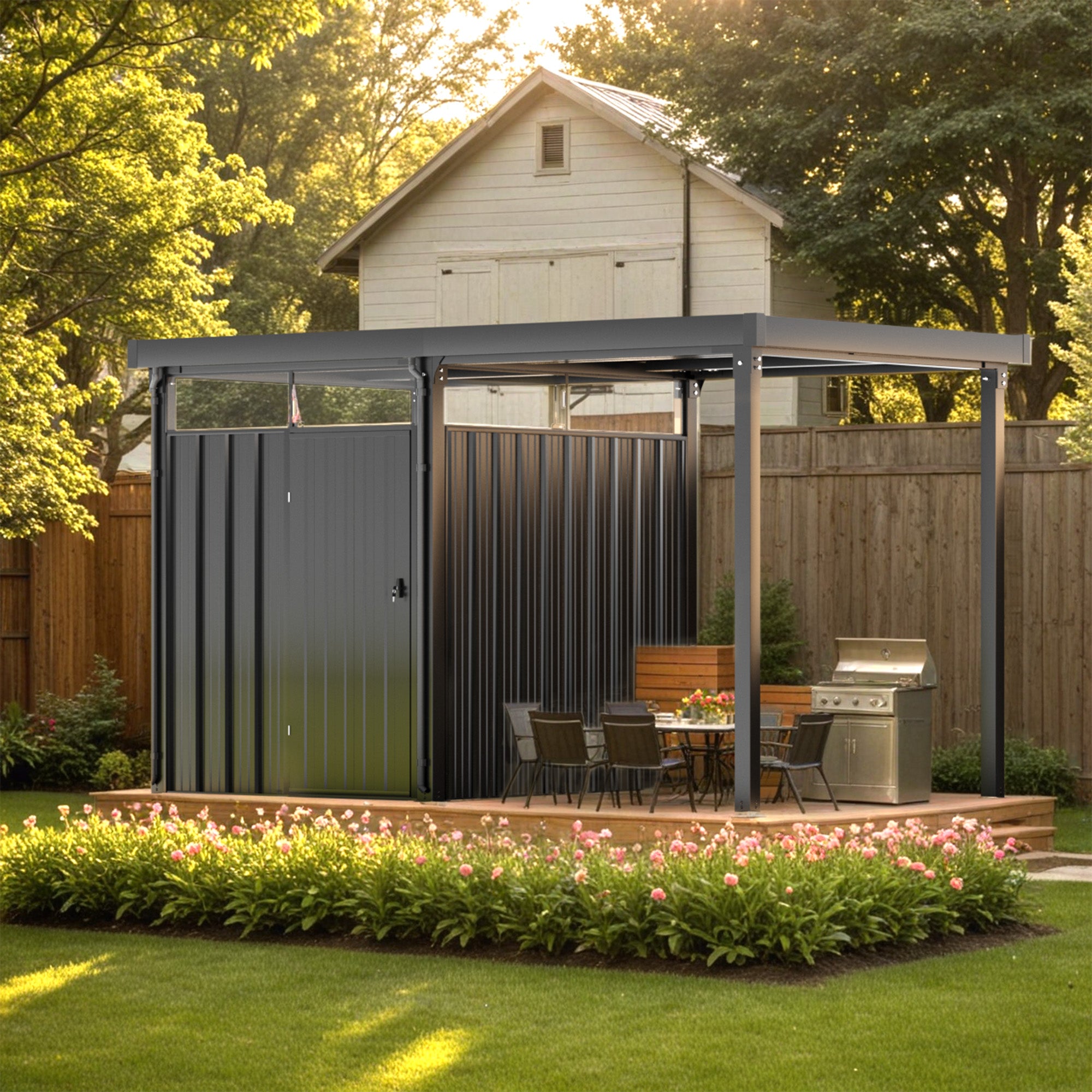
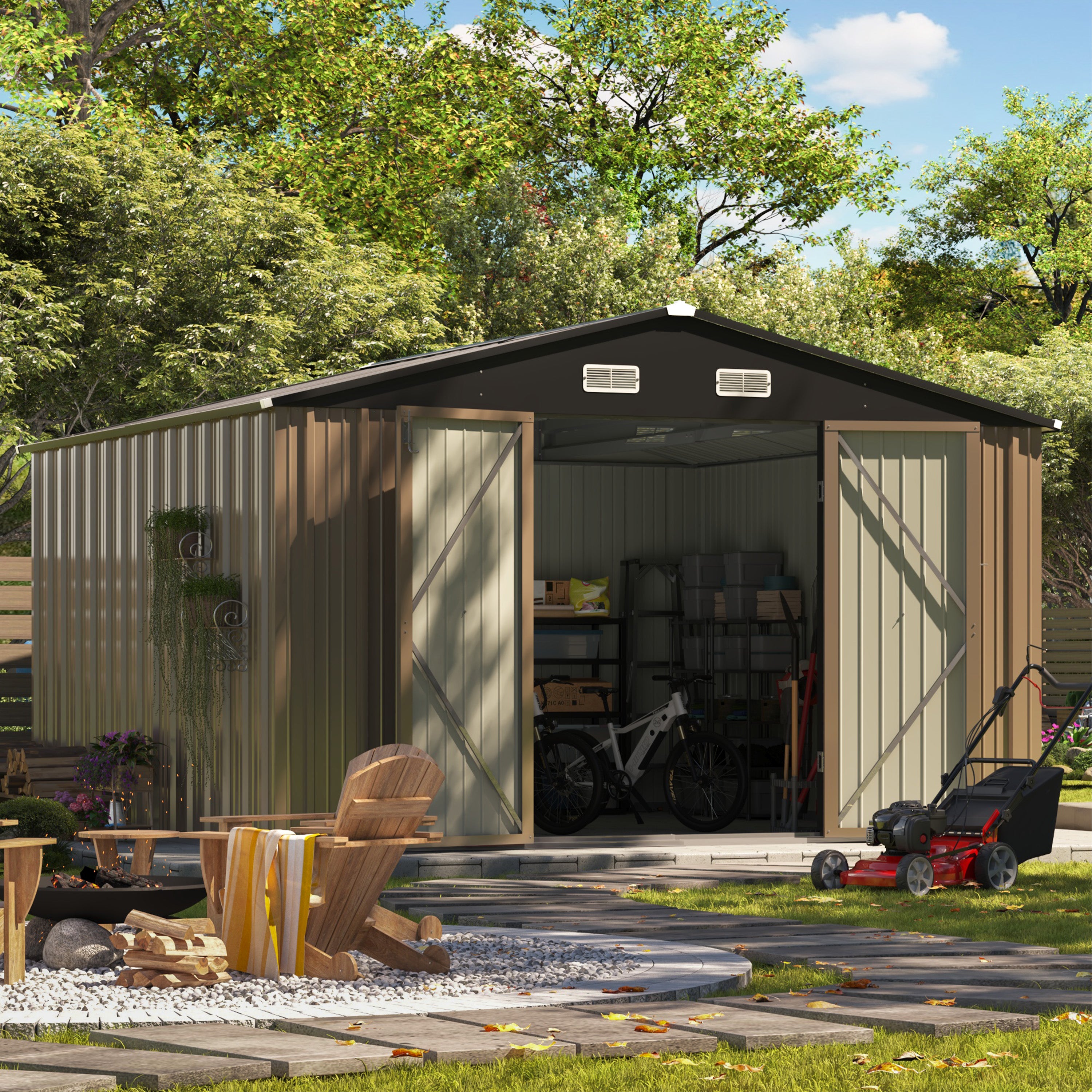

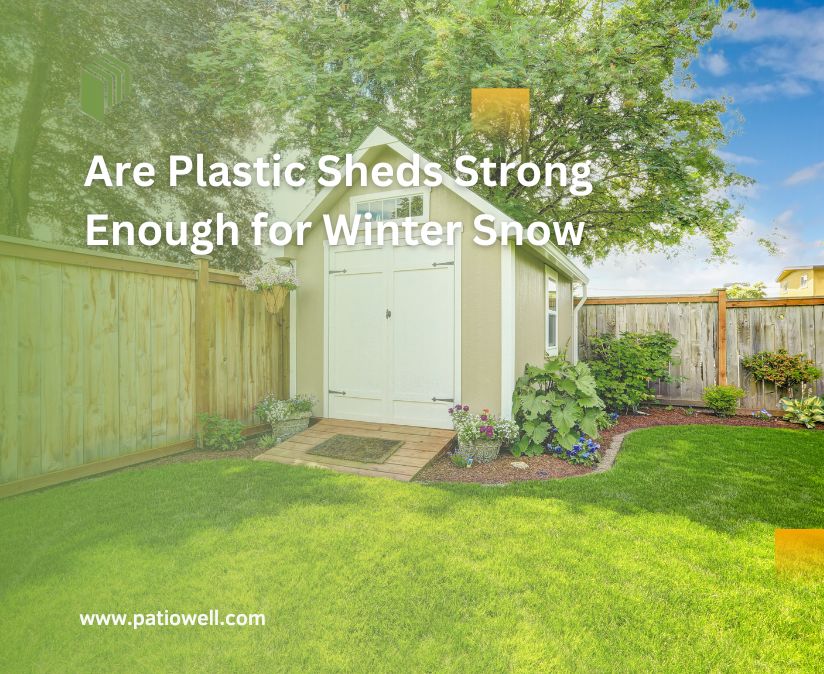
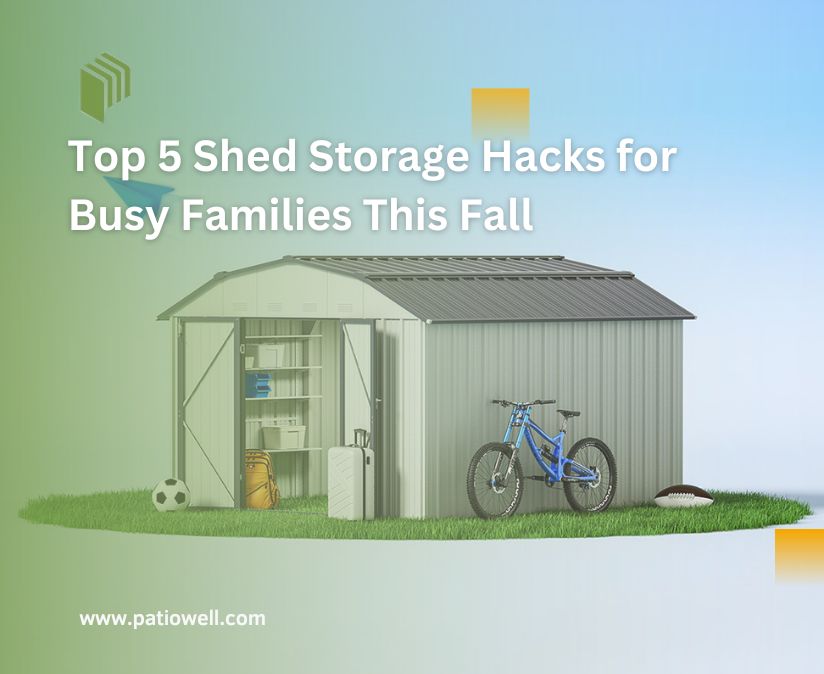
Leave a comment
All comments are moderated before being published.
This site is protected by hCaptcha and the hCaptcha Privacy Policy and Terms of Service apply.